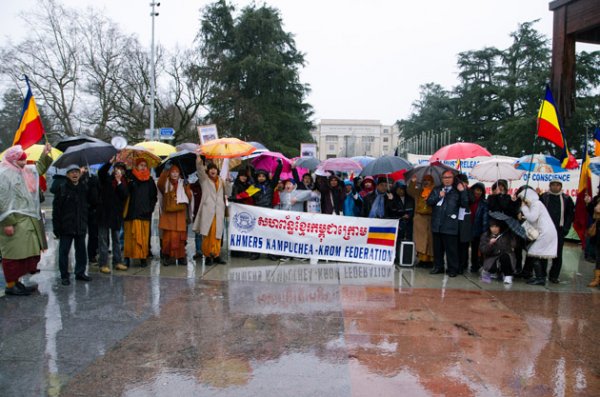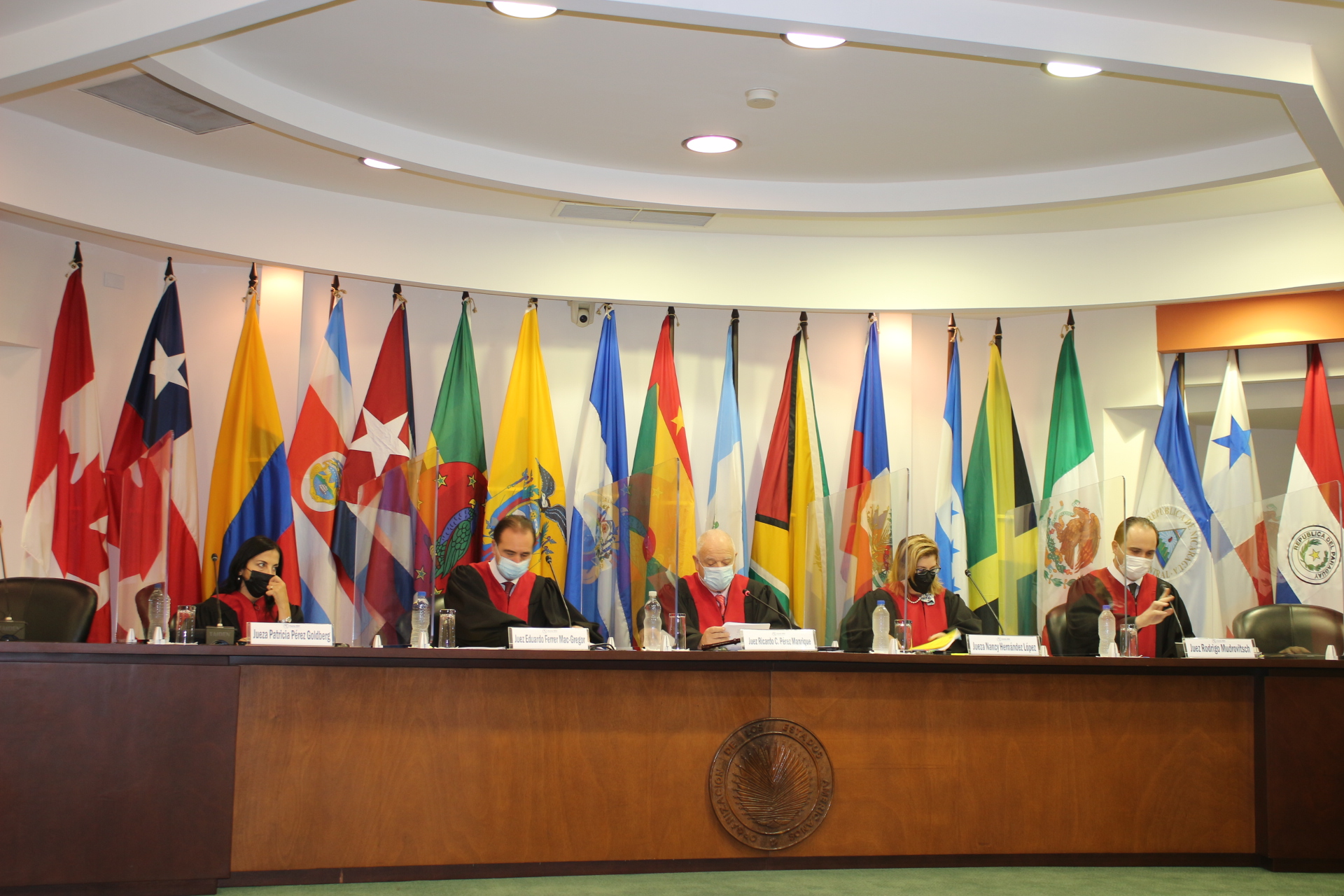In a decision that must be reversed by ECOSOC, States that are members of the UN Committee on NGOs have moved to silence an NGO and deny it access to the UN in violation of the rights to freedom of expression, association and due process.
Update 1 February 2016
The NGO Committee has voted to close the application of the Khmers Kampuchea-Krom Federation (KKF) denying the NGO the opportunity to apply for consultative status. This came on the back of the Committee’s decision on Thursday to deny the NGO the opportunity to even speak in support of its own application.
Only 3 Committee members voted against closure of the application – Greece, Israel and the US- with Uruguay abstaining. All other Committee members voted in favour.
The US made a strong statement in support of the KKF’s integrity as an organisation, Greece called the vote an ‘extreme penalty’ against an NGO, noting that no application should be closed without ‘unambiguous proof’ that an NGO operated contrary to the principles of the UN Charter.
Vietnam – the State that has consistently objected to the application by the KKF – congratulated the Committee on its decision and its ability – as it described it – to distinguish between ‘genuine’ NGOs and others.
‘The NGO Committee is known for denying NGOs access to the UN through the practice of multiple deferrals of applications. However, the Committee has hit a new low in denying an NGO the opportunity even to apply for access,’ said ISHR’s Eleanor Openshaw. ‘Furthermore, it allowed accusations to be made against the NGO during its own session, without allowing the NGO to respond. The NGO Committee has allowed an NGO to be stigmatised and then silenced. ECOSOC must reverse the decision of its Committee on this case at its next session in April.’
(New York) – A group of States led by Cuba, Nicaragua and Venezuela has succeeded in a UN vote to deny an NGO the right to respond to questions and allegations against it. In a move that the United States described as sending ‘a chilling message that free speech is under threat at the UN’, a majority of States in the UN Committee on NGOs voted in favour of silencing Khmers Kampuchea-Krom Federation (KKF), a US-based NGO. KKF is applying for ‘ECOSOC consultative status’ through the NGO Committee, a designation which is required for an NGO to be permitted to access and participate in many UN meetings.
The UN NGO Committee’s vote on Thursday came after KKF’s application came before the Committee for consideration. In a joint statement, Cuba, Nicaragua and Venezuela requested that the application by KKF be closed. They based their objection on concerns first expressed by Vietnam when KKF’s application was first considered in 2012. At the time Vietnam described KKF as ‘unqualified for a consultative status with ECOSOC’, alleging that it carried out ‘politically motivated acts (…) undermining the national unity of the State of Vietnam’. The objections put forward by Vietnam in 2012 led to ECOSOC reversing an earlier NGO Committee consensus decision to grant the KKF consultative status. In line with ECOSOC rules of procedure, an NGO can reapply for consultative status, which KKF did in 2015.
The request by Cuba, Nicaragua and Venezuela to close KKF’s new application was challenged by the US who called the move premature, as the NGO’s application had only been considered once by the Committee. It was agreed the NGO Committee would vote on the application on Friday morning.
The members of the Committee then voted on the Chair’s proposal to allow the NGO to speak at the regular Q&A held at the end of each day the NGO Committee sits. Greece, Israel, US and Uruguay voted in favour of allowing the organisation the right to speak. Russia abstained. All other members of the Committee – Azerbaijan, Burundi, China, Cuba, Guinea, India, Iran, Mauritania, Nicaragua, Pakistan, South Africa, Sudan, Turkey, Venezuela – all voted against, except Guinea who was absent.
The US noted that it was essential that the KKF be allowed to speak as this had to date been a one-sided discussion based on Vietnam’s original protest against the NGO. The US noted that ‘a serious allegation of misconduct’ was made against the NGO and the Committee was denying the NGO a chance to respond. They characterised the vote as one between freedom of speech and silencing debate.
Committee member Greece noted that ‘one thing is to object to an NGO and another is to silence them’.
States who voted against allowing KKF to speak quickly took the floor to distance themselves from the accusation that they were restricting freedom of speech, emphasising that their objection lay in their view that the NGO’s mission contravenes the UN Charter.
Russia, who abstained in a vote regarding KKF’s participation in the Q&A, expressed interest in hearing from the NGO why it considered it should be reconsidered for consultative status having had its application previously rejected by ECOSOC.
At the time of their denied accreditation in 2012, several NGOs including ISHR and Human Rights Watch, came together to express deep concern at the development. KKF is a US-based NGO that ‘through the use of peaceful measures and international laws, seeks freedom, justice, and the right to self-determination for the Indigenous Khmer-Krom Peoples living under the oppression of the Vietnamese government in Kampuchea-Krom’.
‘By refusing to allow KKF the right to speak at a Q&A, the Committee is denying the organisation an opportunity to refute an accusation made against it by a UN Member State,’ said ISHR’s Eleanor Openshaw.
‘Not only has the reputation of the organisation been seriously questioned, but a dangerous precedent set where an UN Committee silences an NGO seeking to engage with the UN. This is plainly incompatible with the rights to freedom of expression and association,’ Ms Openshaw said.
ISHR’s view in this regard is strongly supported by the UN’s own expert on freedom of association and assembly, Maina Kiai, who in a major report in 2014 said that multilateral institutions have a legal obligation to ensure that people ‘can exercise their rights to freedom of peaceful assembly and of association in multilateral arena’. In that same report, the Special Rapporteur was particularly critical of the conduct of States on the UN’s Committee on NGOs, resulting in the systematic exclusion of NGOs working on human rights issues. ‘States sitting on the Committee should champion the right to freedom of association and the right to freedom of peaceful assembly,’ said Mr Kiai in his report.
Update – Friday, 29 January 2016
The NGO Committee has formally voted to close the application of the Khmers Kampuchea-Krom Federation (KKF), denying the NGO the opportunity to apply for consultative status. This came on the back of the Committee’s decision on Thursday to deny the NGO the opportunity to even speak in support of its own application.
Only three Committee members voted against closure of the application – Greece, Israel and the US – with Uruguay abstaining. All other Committee members voted in favour.
The US made a strong statement in support of the KKF’s integrity as an organisation, while Greece called the vote an ‘extreme penalty’ against an NGO, noting that no application should be closed without ‘unambiguous proof’ that an NGO has operated contrary to the principles of the UN Charter.
Vietnam – the State that has consistently objected to the application by the KKF – congratulated the Committee on its decision and its ability, according to Vietnam, to distinguish between ‘genuine’ NGOs and others.
‘The NGO Committee is notorious for denying NGOs access to the UN by multiple deferrals of applications. Today, however, the Committee hit a new low in denying an NGO the opportunity to even apply for access,’ said ISHR’s Eleanor Openshaw. ‘Furthermore, it allowed accusations to be made against the NGO during its own session, without allowing the NGO to respond. The NGO Committee has allowed an NGO to be defamed and then silenced, in violation of the fundmental principles of freedom of expression, association and due process that should guide the Committee’s work. ECOSOC must reverse the decision of its Committee on this case at its next session in April.’
Background
The NGO Committee is a committee of ECOSOC that considers applications by NGOs for consultative status with the UN, a status allowing them to access and participate in a range of UN meetings. During its public session of a week and a half, each day ends with a Q&A during which NGOs are provided with an opportunity to provide a short presentation of their organisation and answer questions from Committee members.




